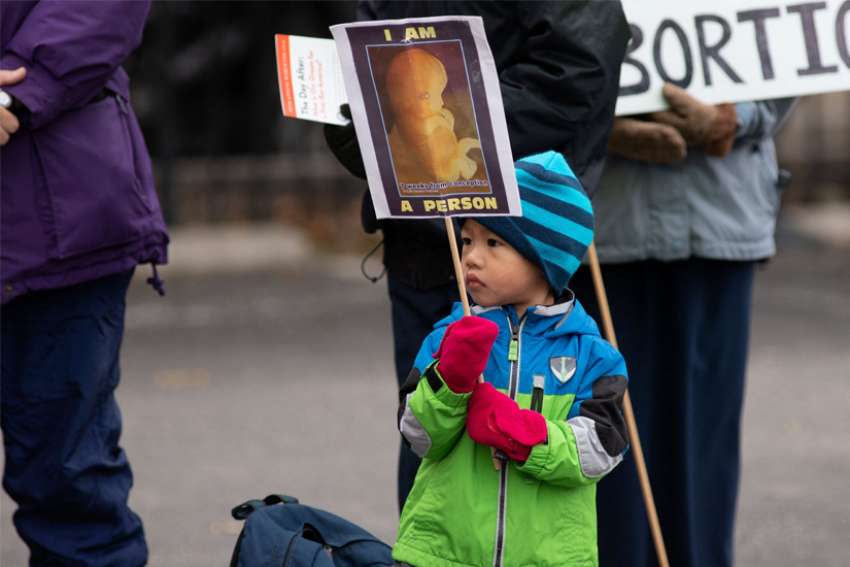There is, in fact, evidence that Grandma was correct, that some pro-lifers were involved in the truck convoys that caused extended havoc at several Canadian sites, especially downtown Ottawa, and that some rejected public health measures which lowered the incidence and severity of the COVID-19 virus.
Even so, Grandma’s “argument” says nothing about the rational value of the two causes. That people are inconsistent in applying the principles to which they claim to adhere does not make both of their stances wrong. What it does point to is the cultural pervasiveness of a mistaken notion of human freedom.
I fully support laws which restrict access to abortion. Human life is a basic human good which ought to be respected from the time of conception to the grave. And at all points in between. The arguments which reject laws banning abortion assume that we create our own moral truths and that it is a travesty to impose “your values” on others.
Thank God that society does not consistently abide by such relativism, or we would have utter chaos every day and in every way. I suspect Grandma is glad that we don’t regard motorists’ “right” to drive on either side of the road, the acceptance of bribes by politicians and the beating of spouses by their partners as matters of personal choice beyond the reach of the law. Laws prohibit such activities, and it is good that they do. A decision by the U.S. Supreme Court to overthrow the 1973 Roe v Wade ruling on abortion should also be most welcome.
Such a decision will be met with outrage because so many have bought into the notion that human freedom means discarding any notion of universal moral truth. It is not just the Catholic Church which maintains that freedom comes through respect for incommensurable moral goods such as the right to life. The classical tradition going back to Plato and Aristotle sees such respect as the dividing line between civilization and anarchy, an anarchy which would lead to tyranny.
The classical tradition is incomplete in that it paid little or no attention to historical development, the class structure of society and cultural difference. But such shortcomings should not mean throwing out the wheat with the weeds.
Take the Catechism of the Catholic Church, for example. This teaching document maintained that natural law must be adapted to different places, times and customs. Yet, even if the natural law is itself rejected, “it cannot be destroyed or removed from the heart of man. It always rises again in the life of individuals and societies” (1957-58). The human desire for the good — the foundation of any true understanding of conscience — cannot be eradicated from our hearts. Even decades of communist totalitarianism failed to squelch the human yearning for truth, goodness and beauty.
This points to another error of the pro-choice mentality. Because it is unmoored from any objective notion of moral truth, it proclaims a false understanding of conscience. Freedom of conscience is presented as the right to make personal choices based on a “truth” fashioned by one’s own will. However, conscience, properly understood, expresses itself in a judgment of how to act in relation to the truth about goodness. Conscience is never an arbitrary decision which ignores objective truth.
For American pro-lifers, this will be a difficult time. They will come under siege from the media and ardent supporters of abortion rights. They will be portrayed as loonies and agents of repression. It will be best if, in their actions, they do not give credence to such charges.
In Canada, we have little ground for optimism that restrictions on abortion will be applied in the short or medium term. The conflict and propaganda sure to ensue after the overturning of Roe v Wade may further entrench Canadians’ lackadaisical attitude to protecting the lives of unborn children. Nor will any of the major political parties act to protect these children.
Canada’s hope lies over the long term with education about the realities of fetal life and the true nature of freedom and conscience. It will be a slow, uphill battle, one which will require patience, prayer and perseverance.
(Glen Argan writes his online column Epiphany at https://glenargan.substack.com.)


